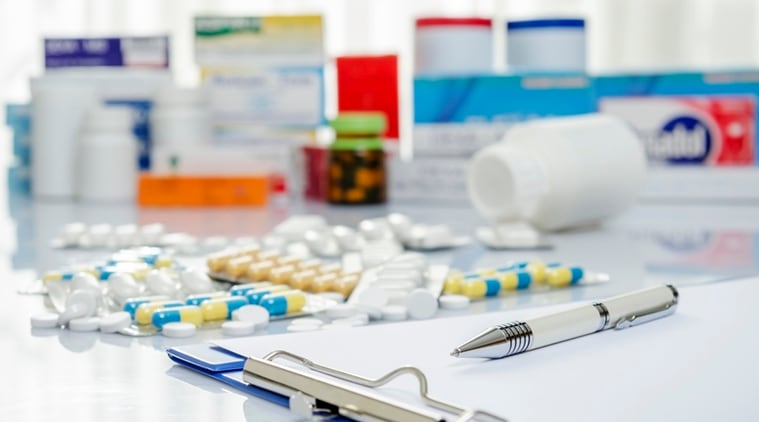The crisis is so acute that patients are being asked by doctors to bring dressing bandages or surgical suture apart from medicines.
A series of measures initiated by the Telangana Health Department to regulate and track supply and storage of essential medicines has resulted in an acute shortage of life-saving medicines and injections at government hospitals.
The shortage at some of the biggest hospitals in Hyderabad, like Osmania General Hospital, Nilofer Children’s Hospital, Gandhi Hospital and Mahatma Gandhi Medical College and Hospital at Warangal, is so acute that patients are being asked by doctors to bring dressing bandages or surgical suture apart from medicines.
The medicines are supposed to be provided free at government hospitals. However, a scrutiny of books at Osmania General Hospital and Gandhi Hospital showed that out of every 10 medicines requested by doctors, eight were not available or not supplied by the government. The shortage was even worse at rural primary health centres and community health centres.
Telangana Health Minister Etela Rajender said the shortage was temporary. “We are in the midst of working out a new system of supplying and stocking medicines at government hospitals,” he told The Indian Express.
“We initiated this after two children, who were given Tramadol tablets at urban health centres after they were given pentavalent vaccine, died due to complications in March. Tramadol tablets should not have been given. We want to regulate the storage and issuance of medicines which may cause harm if not given under proper supervision,” Rajender said.
“Many life-savings drugs have short shelf life of 3-4 months. We found that procurement, transportation and distribution to hospitals and PHCs was taking a minimum of three months, by which time the expiry date was due. So we are procuring limited medicines and supplying them to hospitals, hence the shortage. We are trying to put in place a system through which we can take stock of medicines at all government hospitals without having to worry about expiry dates.”
But in the meantime, patients are bearing the brunt. Those who are covered under Telangana goverment’s Arogyasri healthcare scheme are purchasing medicines, IV fluids and dressing bandages from private shops and bringing them to doctors treating them at government hospitals.
The Healthcare Reforms Doctors Association, an organisation of government doctors working in Telangana, has written to the Principal Secretary, Telangana Health, Medical and Family Welfare A Shanti Kumari. In a letter submitted on June 12, the association said that many “basic emergency drugs and antibiotics are unavailable in tertiary care institutes for last couple of months, due to which patients who can afford are forced to buy basic medicines from private pharmacies while those who cannot afford are left without treatment, due to which many patients have died”.
Dr K Mahesh Kumar, president of Healthcare Reforms Doctors Association, an organisation of government medical practitioners, said that government hospitals should be keeping a stock of life-saving and essential drugs for 3-4 months. “Instead, we are in a situation where we don’t have medicine stocks at government hospitals at all. Health Department officials say we should make do with alternative medicines that are available, but that is not always possible,” he said.
Mamidi Suresh, whose wife Saroja was admitted at Gandhi Hospital for suspected dengue, had to buy medicines worth Rs 1,990 as they were not available at the hospital. “Now they are saying we should shift her to a private hospital for further tests as they do not have necessary equipment. I cannot afford a private hospital,” he said.
Source: Read Full Article


